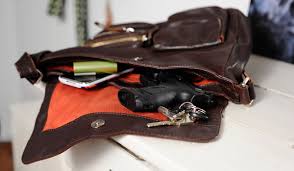A Brief Introduction to Michigan Gun Laws

Gun Ownership in Michigan
No license is required to purchase a long gun (defined as a firearm over 26 inches long) in Michigan. This means that anyone over the age of 18 can buy and possess most shotguns and rifles, provided that they are not disqualified by a criminal record, history of mental illness, or similar disqualifying criteria such as a valid Personal Protection Order (PPO). Owners of rifles and shotguns need to be familiar with the regulations from the Michigan DNR regarding the transportation and possession of firearms, particularly from October to January.
To purchase a handgun from a state dealer or private seller and if you do not have a concealed pistol license (CPL), you must obtain a license from the chief of police if you reside in a city, or the country sheriff if your area of residence has no dedicated police department. Licenses may only be granted to Michigan citizens who:
- Are 18 or older
- Have never been convicted of a felony
- Have never been declared insane (unless restored by court order)
If you intend to purchase your handgun from a federally-licensed dealer, you must be at least 21, as federal law prohibits them from selling to anyone who is younger.
Open Carry in Michigan
In general, open carry is legal in Michigan. Open carry means that the handgun and holster are completely visible to the untrained eye, which means the general public. A holster worn inside your waistband is considered concealed carry. One significant exception is transporting or possessing a firearm in a vehicle. If you do not have a concealed pistol license, your gun must be unloaded and taken down, in a case, placed in the trunk, or otherwise inaccessible to anyone inside the vehicle.
Concealed Carry in Michigan
Michigan is a shall-issue state, meaning that if you qualify for a concealed carry permit, you must be issued one. To qualify, you must:
- Successfully complete a firearms training course
- Undergo a background check
- Be fingerprinted
- Have no felony conviction or background of mental illness
- Have no designated misdemeanors in the past eight or three years as listed in the law
Once issued by your county clerk, your permit is valid for five years.
Prohibitions on Gun Carrying in Michigan
Pursuant to MCL 750.234d, you may not carry a firearm in any of the following locations, without a concealed pistol license:
- Churches
- Depository financial institutions
- Courthouses
- Theatres
- Sports arena
- Day care centers
- Hospitals
- Establishments licensed under the Michigan Liquor Control Act
Pursuant to MCL 28.425o, a concealed pistol license holder may not carry concealed in any of the following locations:
- Schools or school property
- Public or private child care or daycare centers
- Taverns or similar places that derive their primary income from selling alcohol for on-site consumption
- Hospitals
- Churches
- Sports arenas and entertainment venues that seat 2,500 or more people
- Dormitory or classroom of community colleges, colleges, or universities
It is also illegal to carry a gun if you are under the influence of alcohol. Michigan law on this matter is even stricter than DUI guidelines, in that you don’t even have to be legally drunk to be break the law. It is recommended that you refrain from carrying if you have had any alcohol at all.
For assistance with your permit application and / or interpreting local and Michigan state laws, contact Michigan Gun Law today. We will help give you peace of mind by ensuring that buying and owning a gun is done in accordance with all applicable gun laws.
~Originally posted on September of 2016~
